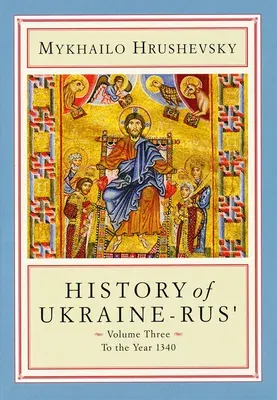Volume 3 concludes the first cycle of the History of Ukraine-Rus', which
Mykhailo Hrushevsky characterized as the story of the Ukrainian people's
historical existence from its beginnings to the collapse of statehood in
the fourteenth century. Here Hrushevsky deals with one of that history's
least known but most intriguing periods--the time of the preeminence of
the Galician-Volhynian state and the spread of Tatar (Mongol) rule over
the Ukrainian lands. The volume also offers a comprehensive discussion
of all aspects of political, social, and cultural life in the Old Rus'
period. In discussing the Galician-Volhynian state, Hrushevsky describes
its first prince, Roman Mstyslavych, as an effective and forward-looking
leader. His son Danylo Romanovych protected his state against the Tatars
while seeking support from the West. That policy continued under
Danylo's successors, but with the extinction of the Riurykid dynasty the
Galician-Volhynian lands were absorbed by Poland and Lithuania. During
this same time the lands of the Dnipro region were experiencing the
decline of the princely and military retinue system and increasing
subordination to Tatar rule. In examining life in Old Rus', Hrushevsky
discusses the rights and relations of princes, the functions of princely
servitors and administrative officials, the legal code and judicial
system, military organization, church organization, and the composition
and structure of society. He goes on to describe economic relations,
family and social relations, religious life, education, and artistic
creativity. He also examines Old Rus' writings, particularly the Kyiv
and Galician-Volhynian Chronicles. Throughout, the master historian
demonstrates the erudition and command of source materials for which he
is renowned.

